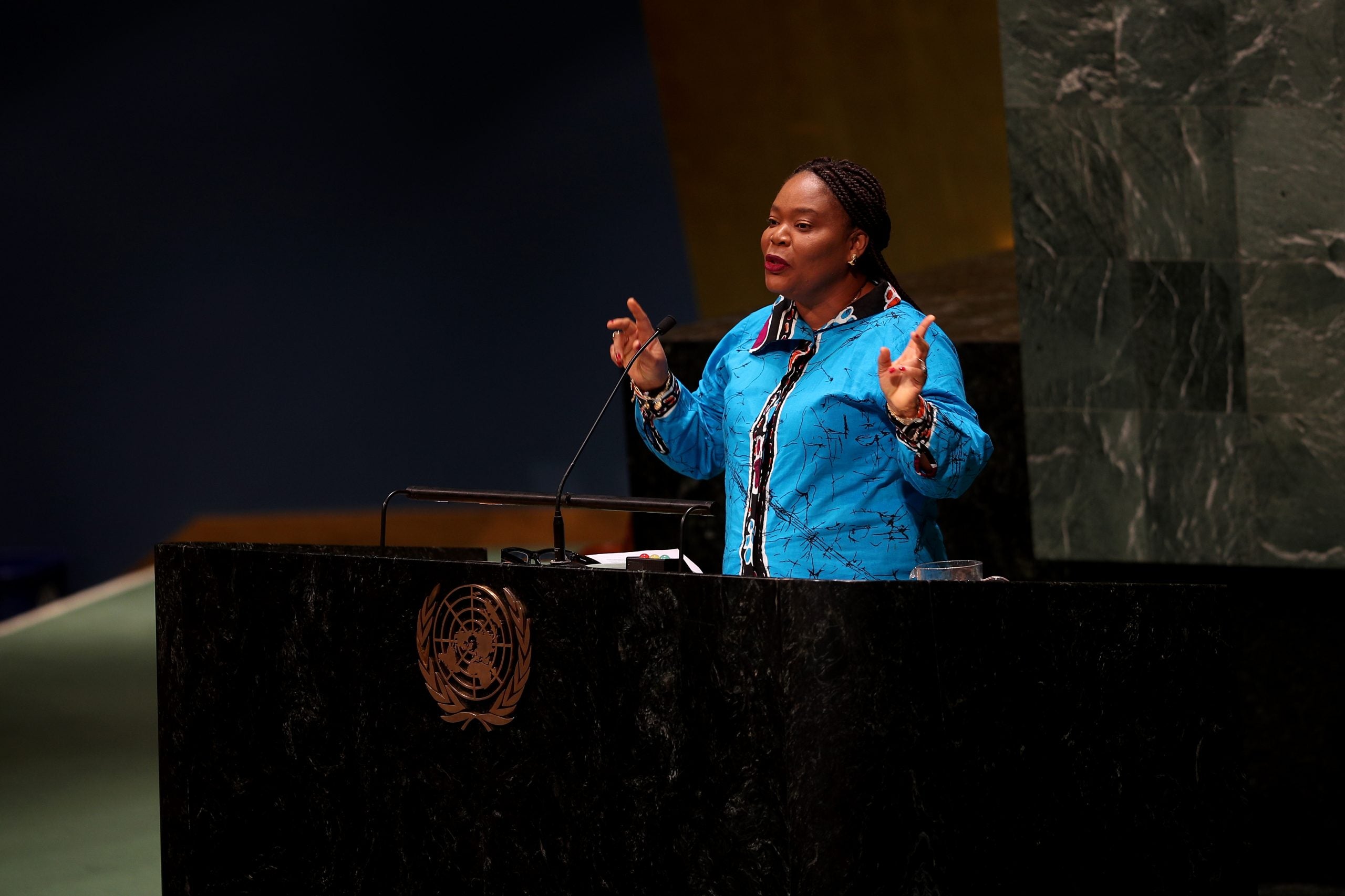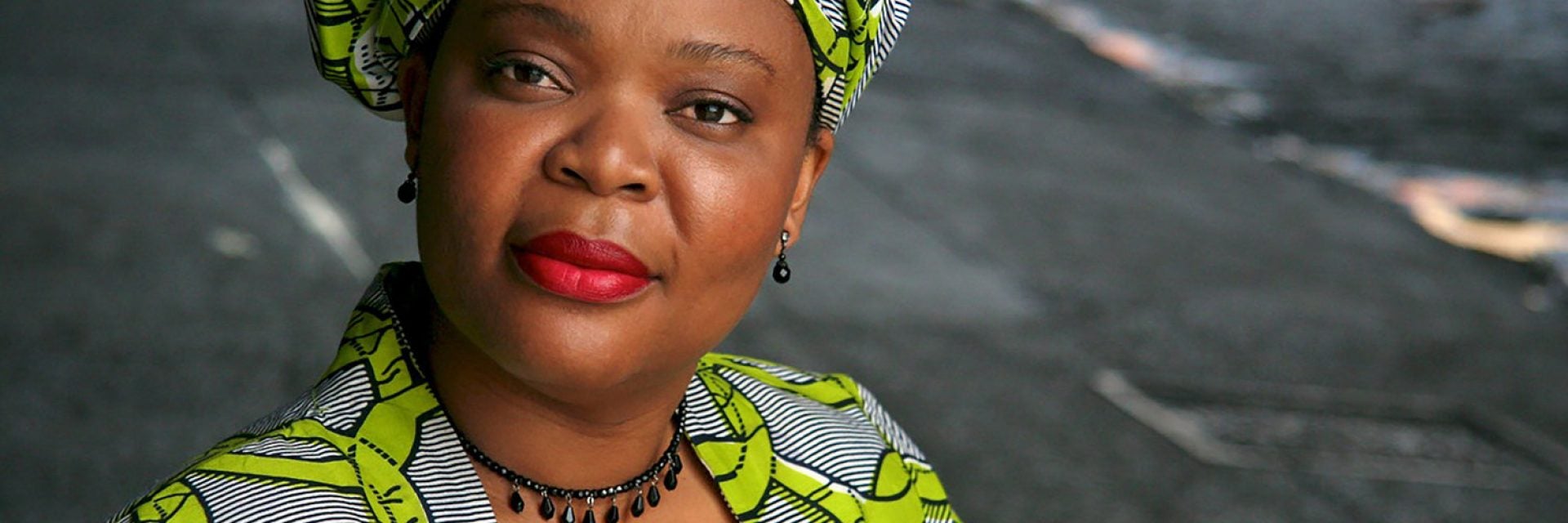On Sunday, Liberian peace activist and Nobel Laureate Leymah Gbowee will participate in a special debate, titled “Global Cooperation: New Institutions for a New Era?” speaking out on the future of global governance.
Gbowee, who won the Nobel Peace Prize in 2011 for her work leading the non-violent women’s peace movement, the Women of Liberia Mass Action for Peace that is credited with helping bring a decisive end to Liberia’s civil war, knows a lot about conflict and the best ways to combat it. Collaboration, compassion, and true reconciliation of the injustices that we continue to see worldwide are the ways to go, the activist noted, or no amount of restructuring will fix the social, political, and economic ailments that we continue to observe worldwide.
“The debate is primarily focused around all of the different international bodies and whether the current state of the world is calling for… a remake of the [United Nations], a remake of the [European Union], a remake of all of the different [bodies],” Gbowee noted. “My key message is that we don’t need to redo anything because what we need to do is to be invested in our collective humanity. This is where we have a problem because in the world today, most people tend to find themselves at a place where the powerful are almost always trampling the ones who are seemingly not powerful.”
“I don’t care if we redo 10 United Nations; if we redo 10 EUs; if we do another form of NATO or whatever the world is calling us to do, as long as we are persistently…in a place where there is not a single thought about the ‘other’, we will continue to find ourselves [in this place],” she added. “There has to be a serious investment in human security. When I talk about human security, I’m talking about people’s right to life, right to food, right to justice, right to everything.”
The live virtual event is sponsored by Doha Debates, a group that engages people in conversations about global challenges through a series of award-winning short films, podcasts, debates, and videos. The debate will also feature live digital voting and audience participation so that attendees can interact directly with Gbowee and other participants through social media using the hashtag #DearWorld.
“I’m in awe of Leymah and her trailblazing efforts that helped end the Liberian civil war,” Amjad Atallah, managing director, Doha Debates, said in a statement. “She’s not only an activist but a very successful organizer and leader who brought together women from two communities, Christian and Muslim Liberians, in the common cause through non-violence. Leymah is a moral giant, and we’re honored to have her join us at the Doha Debate. We need Leymah’s in our world now more than ever.”
Indeed, Gbowee is a living aspiration, being one of only 17 total female Nobel Peace Prize winners, and one of only three Black women to ever win the Nobel Peace Prize, which included Ellen Johnson Sirleaf, who served as the 24th President of Liberia and was that first elected female head of state in Africa that Gbowee mentioned. Sirleaf won the Peace Prize in 2011 alongside Gbowee.
Today, the activist continues her work for peace, justice, and freedom, focusing particularly on the education and empowerment of women, noting “injustice to one group of people may as well be an injustice to all.”
In 2011, Gbowee established the Gbowee Peace Foundation Africa, which “provides outstanding education and leadership opportunities to women and youth,” and ensuring they have the tools and knowledge to reach their full potential.
“In the world that we live in, there are so many hurdles and barriers to women reaching their full potential,” she said “I feel, especially coming from the continent of Africa, if those of us who have found our voice do not stand at the back of those who are still trying to find their voices, we will continue to see the difficulties.”

To be clear, when Gbowee mentions those who have found their voices, it is not necessarily about finding the next great leader to pave the way. When asked what advice she would have for Black women dealing with injustices wherever they may reside across the globe, Gbowee was adamant in her message to create the change you want to see.
“Each and every one of us have that power within us to create the change that we need in order to progress,” she said. “If you wait for a savior, that savior may never come and you will never really do or get to do what you intended or what was intended for you to achieve in your lifetime.
“Don’t wait for a [Nelson] Mandela, don’t wait for a Martin Luther King, Jr. Don’t wait for a [Desmond] Tutu. Be your own hero, she-ro. Be your own Tutu, be your own Mandela, be your own Dr. King,” she said. “Rosa Parks did it…Harriet Tubman did it. All of these women were just ordinary women, not that they weren’t afraid, but they never allowed fear to stop them. That’s my message because that’s how I proceed in life. Not that I’m not afraid but I never allow fear to stop me because I know that in many instances, in terms of emancipation, if I don’t it for myself, no one will do it for me.”
If you would like to hear Gbowee speak and ask her any questions you may have, watch Sunday’s Doha Debates installation here.

